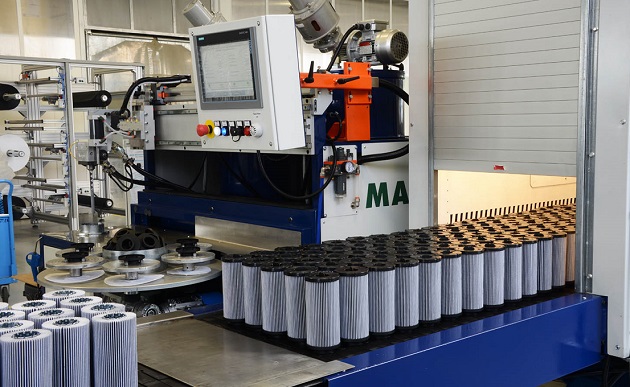
In the May 2022 issue, the Italian magazine “Fluidotecnica” dedicates the article “A passion called filtration” to the UFI Filters Group, which celebrated 50 years of activity in 2021, and to UFI Filters Hydraulics, which turns 30 next July.
The article traces the main stages of UFI Filters’ journey, which began in 1971 in the province of Verona, in Nogarole Rocca, by the father of the current president Giorgio Girondi.
Starting from the production of filtration systems for the Italian automotive market, the company has steadily grown over the years, starting to work with the most important Formula 1 teams and with the most demanding German car manufacturers. Immediately after the company started to expand its activity in new products and new markets around the world.
Today UFI Filters is present in all 5 continents with 19 production plants, 57 commercial offices and three innovation centers and is considered a leading company in the filtration and thermal management market.
Focus on hydraulic power
The article then continues with a focus on the hydraulic division of the UFI Filters Group, founded in July 1992 in Bolgare, in the province of Bergamo.
For 30 years, UFI Filters Hydraulics has specialised in the design, production and marketing of a complete line of reliable and high-efficiency filters for mobile and industrial applications, with the aim of providing innovative and sustainable solutions in the hydraulic filtration sectors.
The hydraulic division of UFI Filters now has over 150 employees in 3 production plants (Italy, China and India) and 8 sales offices around the world.
Flexibility in a changing market
The Fluidotecnica article ends with an interview with Cesare Grassi, Chief Hydraulics Division Officer of UFI Filters, who answers some questions relating to the corporate strategies and the reorganisation of the Italian manufacturing industry after the pandemic and following the Ukraine-Russia conflict. Please find below the full interview.
F: What is the UFI Filters strategy for this market, which seems to be particularly complex?
CG: In its first 50 years, the UFI Filters Group has been able to achieve a leadership position in the automotive market, both in the field of filtration and thermal management: constant innovation and the ability to translate it into series production with innovative processes were fundamental. Today,
UFI Filters is based on these same pillars to continue growing even in the hydraulic filtration market, including the renewed need for sustainability that increasingly characterises the manufacturing industry.
F. From your point of view, will the Italian and European industry have to reorganise in some way after the Covid19 experience and the current events in Eastern Europe?
CG: Both the spread of the Covid19 pandemic and the events in Eastern Europe – says Grassi -, are upheavals of that entity, that are leading, and will lead, to profound changes in the market: the European and Italian industry will have to be able to react positively to these changes, questioning, if necessary, their business models.
The redefinition of political-commercial relations and the sudden revolution in supply chain processes, caused by the escalation of transport costs and the limited availability of raw materials, will force companies to renew their customer portfolios, as well as their supplier base.
F: The Italian manufacturing, leveraging the entrepreneurial spirit that characterises it, combined with the ability to innovate, will be able to adapt to these changes, obviating the criticalities especially in the energy sector. To conclude. How is UFI Filters addressing the 4.0 factory approach?
CG: In this particular context, characterised by sudden evolutions and market instability, it is increasingly essential to be able to take advantage of aligning capacity and demand as quickly as possible: it is in particular in this area that UFI Filters has immediately understood the potential related to the concept of Industry 4.0.
UFI Filters has also understood the importance, not only of continuous technological progress of processes and systems, but of the skills of the staff in order to make them perform to their full potential: human capital has further increased the centrality of its value.
Read the full article or contact our sales team for more information.